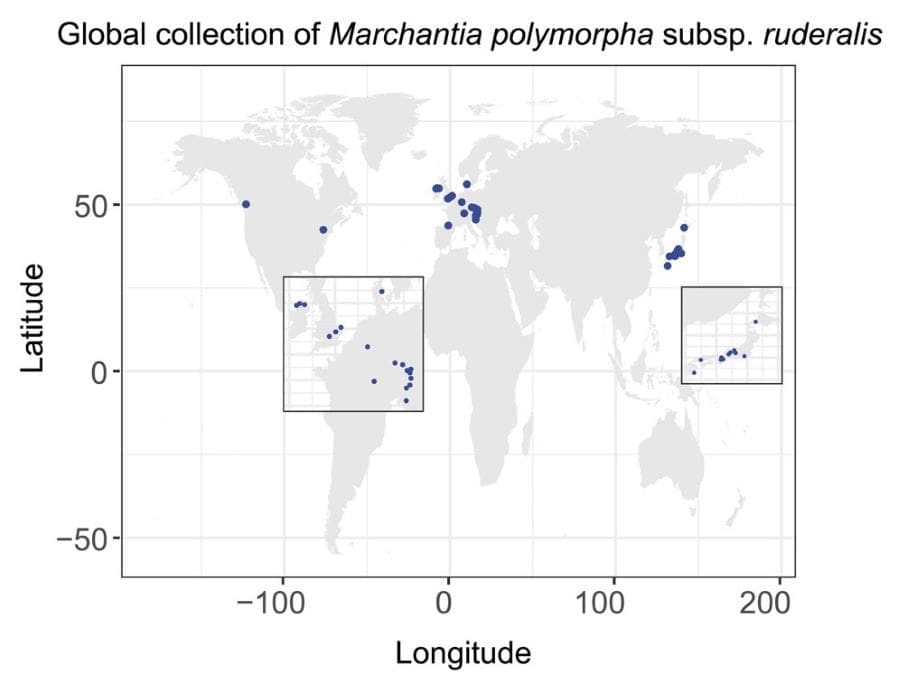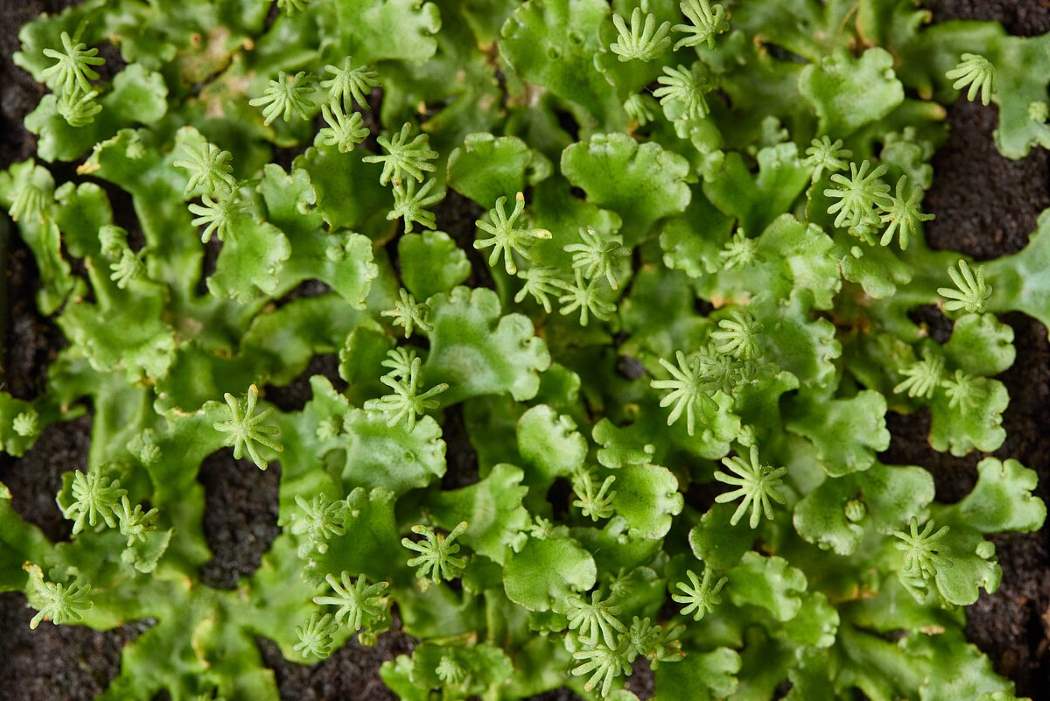Summary:
As climate change alters ecosystems worldwide, plants must adapt to shifting environmental conditions. This is especially crucial for crops, which need resilience against drought and heat to sustain global food supplies.
A recent study published in Current Biology explores the genetic basis of climate adaptation in Marchantia polymorpha, shedding light on how plants adjust to local climates. Researchers from the Gregor Mendel Institute, Hiroshima University, and Umeå Plant Science Centre analyzed genetic variations across regional populations and linked them to climatic differences. Their findings reveal genetic markers associated with temperature and precipitation patterns, suggesting that different reproductive strategies may play a role in adaptation.
The study also introduces a new population genomics database, providing a valuable tool for further research into plant resilience.

Discovering the genetics of climate adaptation
As climate change accelerates, plants face mounting pressure to adapt to shifting ecosystems and environmental conditions. This challenge is especially urgent for crops – plants resilient to drought and heat are essential to secure food supply in an unpredictable future. Fortunately, plants can adapt remarkably well to diverse environments and climates: Arabidopsis thaliana, for example, thrives in regions as climatically distinct as Sweden and Italy.
Understanding how plants naturally adapt to different local conditions is key to predicting their response to climate change, and can help produce more resilient crops.
A recent study provides new insight into the genetic underpinnings of plant climate adaptation. By combining population genetics and global climate data, the researchers identified genetic variants underlying climate adaptation in Marchantia polymorpha.
The study, by the labs of Liam Dolan and Frédéric Berger at the Gregor Mendel Institute (GMI) of Molecular Plant Biology, as well as Kelly Swarts, former GMI group leader and now at the Umeå Plant Science Centre, and Masaki Shimamura at Hiroshima University, was published in Current Biology.
Building a genomic map of climate adaptation
Genetic variants underlying certain traits, like enhanced heat resistance or different seed sizes, are often selected in environments where they provide a survival or reproductive edge. However, which genetic variants are responsible for climate adaptation is mostly unknown.
To uncover these variants, the researchers compared the genetics of different regional subpopulations of Marchantia polymorpha collected across Europe, America and Japan, creating a population genomics database. By integrating this database with a worldwide climate dataset, the scientists correlated each subpopulation’s genetic profile with its local climate.
“Comparing populations in Europe and Japan, we found genetic variants associated with warmer and colder summer temperatures, as well as with the amount of summer precipitation,” explains Liam Dolan. “These adaptations could be crucial for optimizing reproduction in different conditions.”
The study also revealed that genetic variability differs notably between populations of Marchantia polymorpha. Populations collected from different areas in Europe were similar to each other but presented high genetic variability among their individuals.
In contrast, geographically isolated Japanese populations exhibited more uniform genetic profiles, distinct from those in Europe. These patterns suggest that climate adaptation may favor different reproductive strategies in Europe and Japan, as Marchantia and other bryophytes can famously reproduce both sexually and asexually.
The new population genomics database – the first of its kind for Marchantia polymorpha – offers scientists worldwide a powerful platform to study genetic variability.
“We’re eager to expand this database with samples from around the globe, enhancing the robustness of future research,” Liam Dolan points out. “Our platform opens up exciting possibilities for addressing a wide range of biological questions related to plant growth and development.”
Journal Reference:
Shuangyang Wu, Katharina Jandrasits, Kelly Swarts, Johannes Roetzer, Svetlana Akimcheva, Masaki Shimamura, Tetsuya Hisanaga, Frédéric Berger, Liam Dolan, ‘Population genomics of Marchantia polymorpha subsp. ruderalis reveals evidence of climate adaptation’, Current Biology online (2025). DOI: 10.1016/j.cub.2025.01.008 (Also available on ScienceDirect)
Article Source:
Press Release/Material by Gregor Mendel Institute (GMI) of Molecular Plant Biology | Austrian Academy of Sciences
Featured image: Marchantia polymorpha is a powerful model for genetic studies. Credit: ©Johannes Hloch | Gregor Mendel Institute




